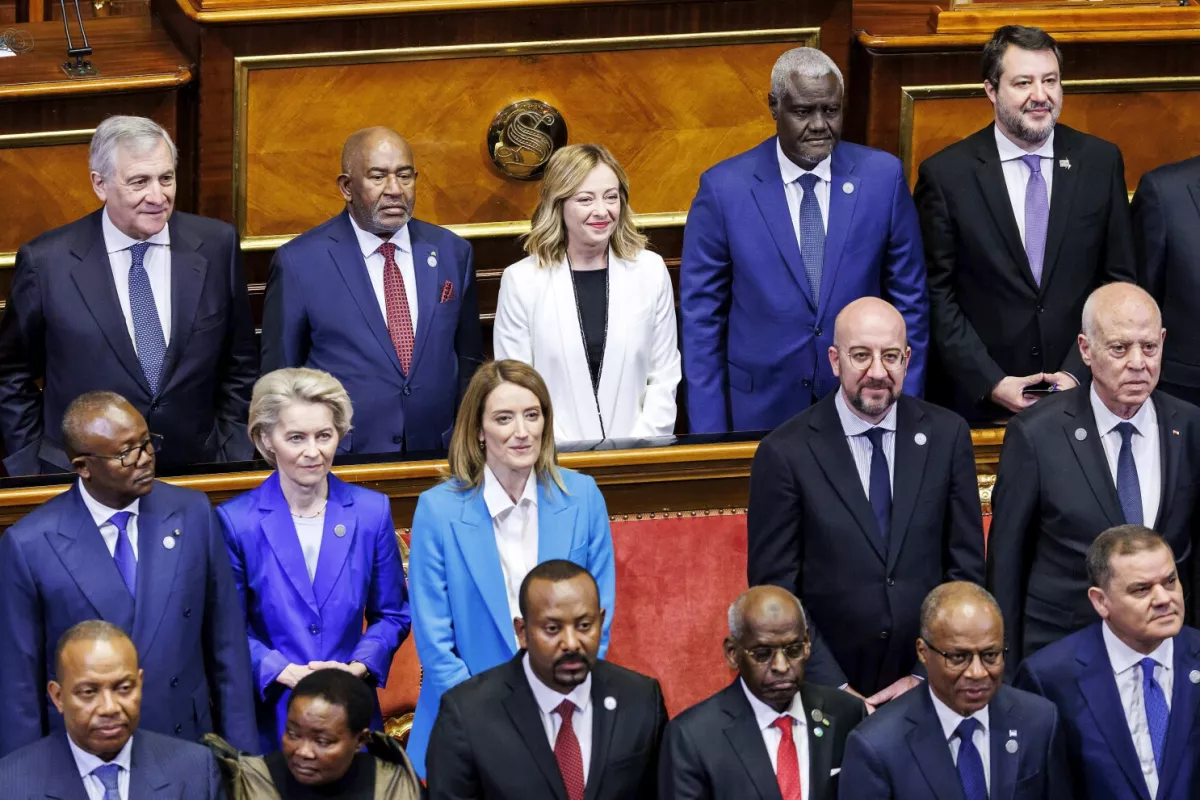Mattei Plan: Blueprint for Italy’s geopolitical ascendancy Securing energy security via African partnership
Italy’s geopolitical strategy is increasingly centred around strengthening hydrocarbon ties with Libya and the broader North African region, envisioning an "enlarged Mediterranean" as a cornerstone of its foreign policy. This vision draws inspiration from the legacy of Enrico Mattei, the founder of Italy’s national energy company, Eni, in 1953 operating primarily in petroleum, natural gas, and petrochemicals.
It is one of Europe’s largest oil companies in terms of sales and has operations in more than 70 countries, including countries surrounding the Caspian Sea like Azerbaijan and Kazakhstan. Mattei’s post-World War II strategy emphasized securing energy resources through partnerships rather than exploitation, offering better terms to African nations compared to other Western powers, thus positioning Italy as a sympathetic partner during the decolonization era.
The "Mattei Plan" has been revived under Prime Minister Giorgia Meloni’s government as a blueprint to reassert Italy’s influence in Africa, focusing on energy security, economic development, competition with global powers like China and Russia, and managing migration flows. The German Institute for International Politics and Security (SWP) highlights in their paper on the ambitious project that Rome seeks to apply Mattei’s cooperative spirit to modern challenges, aiming to access Africa’s abundant energy resources while promoting itself as a neutral and respectful partner, contrasting with the more interventionist approaches of other powers.
Driving factors
Italy’s interests in Africa are multifaceted. First, securing a stable and diversified energy supply is essential for a resource-poor country like Italy, particularly amid global energy market uncertainties. Italy aims to strengthen its energy partnerships, tapping into African reserves of oil, gas, and renewables, while framing its involvement as mutually beneficial and non-exploitative.
Second, Rome seeks to stimulate economic development through infrastructure investment, technology transfer, and trade expansion, creating new opportunities for both African countries and Italian businesses.
Geopolitically, Italy is responding to the growing influence of China’s Belt and Road Initiative and Russia’s renewed engagements in Africa. The Mattei Plan seeks to offer African nations an alternative partnership model emphasizing sovereignty, cooperation, and fewer political conditions. It also coincides with a period of diminishing French influence in Africa, creating a strategic opening for Italy to enhance its presence.
However, realizing the Mattei Plan faces considerable challenges, particularly regarding financing and execution. Meloni announced an initial funding pool of €5.5 billion, sourced mainly from the Italian Climate Fund and development cooperation resources. Yet, compared to the vast needs of the African continent, this sum appears limited. In 2023, a decree-law defined the Mattei Plan’s framework but lacked details on specific projects or funding allocations. A steering committee, including the Prime Minister and key ministers, is responsible for its implementation.

Pilot projects outlined by Meloni during the 2024 Italy-Africa summit focused on five pillars: health, education, agriculture, water resources, and the climate-energy nexus. Some initiatives include a university center in Morocco, healthcare development in Côte d’Ivoire, satellite crop monitoring in Algeria, agribusiness promotion in Mozambique, water network construction in the Democratic Republic of Congo, and environmental restoration in Ethiopia. Energy-related projects include advancing the ELMED electricity interconnection with Tunisia and developing a biofuel initiative in Kenya involving hundreds of thousands of farmers.
Importantly, many of these initiatives were already underway through Italian state-owned enterprises or government programs and have now been incorporated into the Mattei Plan. As such, the Plan risks falling short of its ambitious objectives without substantial new projects and additional resources. To maximize its impact, Italy plans to integrate the Mattei Plan with the European Union’s Global Gateway initiative, which earmarked €150 billion for investments in Africa. Aligning with the EU’s broader strategy could provide Italy with much-needed financial and infrastructural support to realize its ambitions.
Rome's relations with Tripoli
Libya holds a special place in Italy’s Mattei Plan. Historically, Italy navigated the 2011 Libyan revolution with more caution than its European allies, largely due to Eni’s deep investments in the country. Today, Libya’s stability presents both a challenge and an opportunity. Through Eni’s influence and by expanding into renewable energy projects, Italy can play a key role in Libya’s reconstruction. Despite Libya’s significant potential for solar and wind energy, current renewables initiatives under the Mattei Plan largely ignore Libya. Incorporating Libya into the "Roadmap to Connect Africa to Europe for Clean Energy Production" would not only bolster Italy’s energy transition goals but also solidify its strategic foothold in North Africa.
By Nazrin Sadigova








